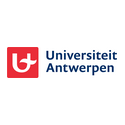In short
The incidence of tuberculosis (TB) in Flanders has stagnated, stressing the need for new tools to improve TB control. The current TB diagnostic pathway in Flanders is complex, time consuming and costly. This situation complicates patients management because identification of the optimal individualised treatment for each TB patient is often not possible in the first 2 months of treatment. Sciensano will participate in a clinical trial assessing the added value of the whole genome sequencing technique (WGS) in streamlining tuberculosis diagnosis, improving TB surveillance and optimising individualised drug resistant TB treatment.
Project description
Sciensano will perform a multicentred, pragmatic theragnostic randomised clinical trial assessing the added value of the whole genome sequencing technique (WGS) in streamlining tuberculosis (TB) diagnosis, improving TB surveillance and optimising individualised drug resistant TB treatment.
Coordinated by the University of Antwerp (Prof. Annelies Van Rie), the trial will be multicentred, recruiting 314 microbiologically confirmed TB patients in Flanders (during a 12-month period), and 280 RIF resistant TB patients from South Africa. The trial will address the following hypothesis:
- A WGS-based TB diagnostic workflow is feasible and acceptable in Flanders, budget neutral from a laboratory perspective and health systems perspective (NIHDI).
- Compared to the Standard of Care (SOC), the theragnostic WGS strategy is non-inferior with regards to patient survival, superior with regards to patient-friendliness of treatment regimens, cost saving from a patient perspective, and budget neutral from a health systems (NIHDI) perspective.
- The higher resolution of WGS results in more accurate insights into the Mtb transmission dynamics of drug sensitive and drug resistant TB in Flanders.
The TB incidence in Flanders has stagnated, stressing the need for new tools to improve TB control. The current TB diagnostic pathway in Flanders is complex, time consuming and costly. The ‘golden standard’ Phenotypic Drug Susceptibility Testing (pDST) is slow and inaccurate or not yet standardised for several TB drugs. This complicates patients management because identification of the optimal individualised treatment for each TB patient is often not possible in the first 2 months of treatment. As a single assay, WGS can more rapidly detect all mutations known to be associated with drug resistance for any TB drug, with high specificity and sensitivity for almost all drugs. WGS data obtained for diagnostic purposes can be used for detection of transmission events and outbreak detection, which can help target public health interventions for TB control in Flanders.
We believe that WGS of Mtb is at a stage where scientific progress can be translated into improved patients care and public health. To change policy and practice, a Random Clinical Trial (RCT) is now needed to show that:
- routine WGS is feasible and acceptable to healthcare providers (clinicians and microbiologists);
- WGS is effective and positively impacts patients outcomes;
- the implementation of WGS is budget neutral from a health system perspective.
To reach these utilisation goals, we will perform a pragmatic multicentre RCT. This study will generate results that have high internal validity, are generalisable to the real-world setting, and reflect clinical and cost outcomes that are relevant to patients, health care providers and policy makers in Flanders.
Sciensano's project investigator(s):
Service(s) working on this project
Partners





